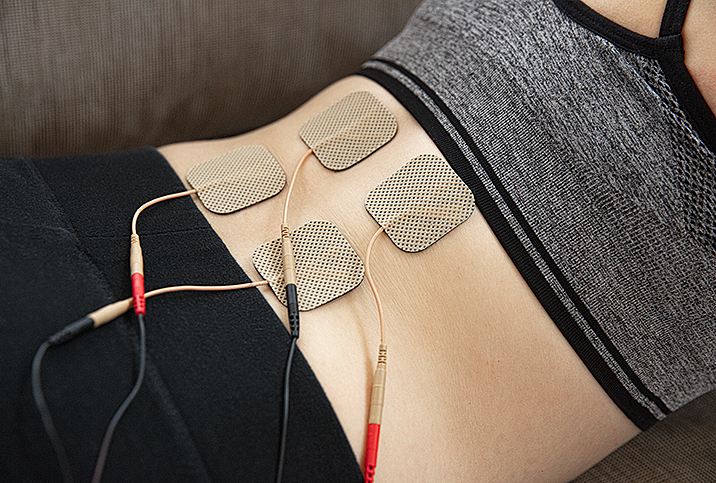Telehealth Abortions Improve Access and Mental Health Outcomes

Telehealth provided temporary measures throughout the pandemic to access abortion by mail. In turn, abortion via telehealth widened access, breaking barriers such as affordability and offering a stigma-free experience.
Abortion through medication, which involves taking mifepristone and misoprostol, was first approved by the FDA in 2000. However, the FDA imposed restrictions on obtaining mifepristone in person.
The Biden administration paused this restriction, allowing patients to receive abortion pills by mail, telehealth or mail-order pharmacy throughout the pandemic. Whether this lift is temporary is up in the air. In some states, such as Texas, bills are being passed to ban mail-in abortion medication entirely.
A recent study found abortion medication by telehealth has a 95 percent efficacy rate (similar to in-person) and that it is both a feasible and safe option. The American College of Obstetricians and Gynecologists endorses medication abortion and notes most patients at 70 days (10 weeks) of gestation or less are eligible.
Fifty-eight percent of American women "live in a state hostile or extremely hostile to abortion rights," according to the Guttmacher Institute. Because so many women are facing barriers to safe and legal abortions, telehealth is becoming a viable and attractive option when available.
Geographic barriers
There has been an uptick in closures in abortion clinics in the pandemic, making abortion access even more difficult. Traveling out of state for an abortion isn't always an option due to costs, childcare and work obligations. Telehealth mitigates this access gap.
One study found the chief reason people look outside the traditional realm of in-clinic abortions is the barrier of clinic access, which Texas restrictions will cause a spike in.
Deborah Oyer, M.D., medical director at Cedar River Clinics in Washington State, notes that prior to offering abortion by telehealth, patients had to show up at the clinic, and now they just need to be in Washington State. This means "folks who live in a rural part of the state have almost the same access to abortion care as those who live in or near the cities."
All you need is technology for access, which Oyer noted is another barrier for some people. To remedy this, Oyer's team set up a satellite clinical site where people who live in the "more rural, Eastern part of the state, can come in to use our technology to talk with our providers who are in Western Washington." Staff can help people operate technology, too.
Is abortion by telehealth better for mental health?
Elisabeth Dee, from Plan C, a resource guide that links people seeking abortions with ways to access abortion medication, noted the stress from in-person abortions can be multifaceted.
Dee shares that through anecdotal evidence, at-home abortions can contribute to improved mental health outcomes because you won't have to travel, provide childcare and the costs are typically more affordable.
The cost of in-person abortions can vary by length of pregnancy, clinic location and insurance. According to Planned Parenthood, a first-trimester in-clinic abortion ranges from $350 to $900—this price increases the longer you are pregnant. Companies such as Hey Jane, Abortion on Demand and Choix offer virtual care and abortion medication between $200 and $300.
Abortion is also time-sensitive, an added factor of anxiety. Longer wait times in clinics compound that stress. After the Texas abortion bans, clinics in nearby states saw an increase in demand that many struggle to fulfill. Knowing you have a prescription that will ship overnight provides relief to that stress.
The security (which comes from discreet packaging) and not needing to leave home might alleviate stress as well. "You can also have it in the comfort of your home surrounded by people who make you feel comfortable; you're not in a foreign environment like a doctor's office," Dee said.
Avoiding an invasive procedure is another added component of stress for some that abortion via telehealth alleviates.
Jamie Phifer, M.D., medical director and founder of Abortion on Demand, a telemedicine platform offering abortion in more than 20 states, noted "the telehealth model of medication abortion becomes less about the provider and more about the patient."
Phifer also brought up the rattling experience of driving or walking by protestors when you're trying to access basic healthcare. There are fewer people involved in the decision to access abortion at home; the privacy afforded could very well make people feel safer.
Are telehealth abortions safe?
With abortion by telehealth, you typically consult with a provider online to determine any potential red flags that could indicate against abortion with medication. Common red flags, Oyer said, can include "inconsistencies in the person's medical history suggesting that their perception of pregnancy length may be off or they are having some pain that makes us want to make certain the pregnancy is in their uterus and not an ectopic."
Oyer added the data on safety figures for at-home abortions is "very good and shows that most people know the length of their pregnancy."
A recent study examined the safety of medical abortion through telehealth versus in person and found that with medical abortion, adverse events are rare. According to Guttmacher Institute, abortion medication is just as safe as surgical abortion.
Because you can typically get scheduled for telehealth sooner than in-person—especially considering the aforementioned access disparities, combined with extensive waiting periods at in-person clinics—there is an additional layer of security. "The earlier you use [abortion-inducing pills], the safer they are," Dee pointed out.
Can Texans still access abortion pills?
The Texas abortion bans, signed into law on September 1, 2021, make it illegal to obtain an abortion in Texas after six weeks, before most people know they are pregnant. To further the narrow abortion parameters, SB4 goes into effect in December 2021, and penalizes doctors who issue abortion medication.
Many online pharmacies are outside of the state—doctors outside of the U.S. who prescribe abortion pills cannot be prosecuted in Texas.
Plan C saw website traffic spike 2,357 percent the first week of September, when SB8 was signed into law. Dee explained, "our website is expressly designed to inform everyone of how they can get an abortion no matter their zip code, and that's not going to change."
Plan C recommends people assess their personal risks around criminalization. The site also offers various resources for legal support.
Abortion on Demand doesn't provide telehealth for abortions where it's restricted by state. Phifer noted these restrictions put patients in precarious situations where "they may feel compelled to provide incomplete information to their providers out of fear that they won't get care or will have their care further delayed."
One study indicated bans lead to a 21 percent increase in pregnancy-related deaths. A woman, whose name has been changed to Sarah, described her experience obtaining abortion medication for an unviable pregnancy: "I cannot imagine being forced to stay pregnant with a ticking time bomb."
Phifer added, "It keeps me up at night to think about the patient who drove from Texas to Arizona for an in-clinic abortion and had her ectopic pregnancy diagnosed early enough to save her life because of the thorough and thoughtful care of her abortion provider. Had that patient remained in Texas and been expected to continue her pregnancy, she may not have survived."
Abortion is a medical procedure that is currently illegal or restricted in some portions of the United States. For more information about the legality of abortion in your area, please consult a local healthcare provider.




















